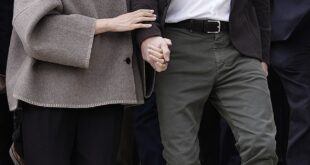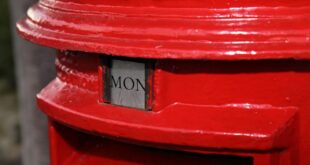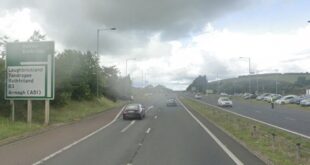WHEN you think something is long gone, another reminder pops up, breathing life into the past.
I’m talking about a recent festival which was uniquely Australian. It celebrated 100 years since the last horse-drawn coach was operated by Cobb & Co.
This festival was in remote southern Queensland near Roma, where the legendary outback stagecoach line once ran and finally ended in 1924.
It’s the transport company pioneered by American Freeman Cobb in 1854. His popular wooden stagecoaches criss-crossed the nation from Castlemaine to Cooktown, connecting outback towns like never before, opening up our vast interior.
Long before modern buses and air travel, these red-liveried Cobb & Co coaches were the Qantas of their day, creating new routes over seemingly impassable land to remote townships despite floods, fires and the threat of bushrangers in the gold-rush era.
Cobb & Co was a household name in Australia. At its peak, the company arguably was the biggest coach empire in the world with 30,000 horses on hand, held in staging paddocks or grazing nearby.
It spread from the Victorian goldfields initially, then into outback NSW and other mainland states.
Up to 6000 horses were harnessed daily in 1870 to haul the coaches to their destinations in set stages, all while carrying royal mail, freight and up to 14 passengers each.
The network of coach routes totalled more than 9600 kilometres and the company dominated state routes with an unchallenged reputation for speed and efficiency.
To keep their horses fresh, Cobb & Co reportedly changed their teams about every 20km, enabling their horses to keep up a consistently brisk pace.
But in the end, the coming of the railways and better communications sealed Cobb & Co’s fate after only 70 years.
Poet Henry Lawson immortalised Australia’s coaching empire and it’s not hard to see how public excitement was generated. For passengers, there would be the regular crack of the driver’s whip and before Cobb & Co coaches pulled into properties to change horses, the driver would announce their arrival by blowing a bugle.
The tiny Queensland towns of Surat and Yuleba, about 60km from Roma, celebrated Cobb & Co’s anniversary in August with dinners, markets and concerts, before culminating in a re-enactment ride along Cobb & Co Way between the two communities.
The journey of 80km was separated into seven sections and involved different animals, including bullocks and horse teams and 19th century-style vehicles.
One of the most unusual vehicles was a stagecoach pulled by five camels.
Camels were once used in the country’s more arid landscapes, such as from Wilcannia to Mount Brown, in NSW.
Lake Macquarie author Greg Powell who recently spent a week in Queensland, including at the Cobb & Co anniversary around Roma, alerted me to a local link.
He provided me with a photograph (pictured) of the camel team and coach, which was a star of the show there. The camels came from Oakfield Ranch, near Anna Bay.
That’s where camel rides along the beach have become such a popular attraction. Since Powell’s tipoff, a few magazine articles have also popped up confirming the involvement of proprietor Rodney Sansom in the Cobb & Co anniversary in Queensland.
Sansom has done something like this before at remote inland places.
Admirers describe him as an “absolute living legend” for the rare transport displays he’s helped organise and participated in.
I wouldn’t mind betting that Sansom’s red-liveried coach, with its distinctive yellow-rimmed wheels, is the same authentic one he once used to take tourists around Morpeth streets, as long ago as 1988.
It had been bought from a man in Dural, on Sydney’s outskirts, and restored. Weighing about a ton, Sansom said this particular coach once ran on the Cobb & Co route between Walgett and Coonamble in western NSW, when they had frequent horse changes to make for a faster service.
Sansom’s stagecoach was not an original imported from the US in the 1850s, but came from Narromine, near Dubbo. It would have once been a gold escort vehicle when all the early coaches carried gold in strongboxes, plus mail and passengers.
Weekender believes no early Cobb & Co coaches worked in the Hunter, but many older ones were bought by the firm’s rivals. Their paint and markings though were never changed. Some may have operated briefly around Mangrove Mountain, near Gosford, adding to the confusion of how far the original Cobb Co coach runs extended.
One of the last Cobb & Co coach drivers, Milton Hobart Dart, ended up living in Cooks Hill. When the Newcastle Herald interviewed him in the 1960s, he was 72.
“It was just hard work and plenty of it,” he recalled.
He started at 18 with his route a 40-mile (64km) stretch from Guyra to Tingha return. When he turned in his whip after nearly three years of service, the company had ceased to exist and a rich, romantic slice of Aussie life had become history.
More missing plaques
Who is stealing our history? Recent Herald stories revealed 30 metal commemorative plaques have disappeared from Newcastle’s foreshore and in Civic Park.
The latest reported theft is of seven plaques at the HMAS Assault Memorial (pictured), behind Little Beach, at Nelson Bay.
The site commemorates 20,000 US servicemen who trained at Port Stephens for amphibious warfare in the South-West Pacific from 1942-43. Few survivors ever returned to the district.
Weekender reader Peter Edwards, of Soldiers Point, raised the alarm, saying he was disgusted. He urged local residents to be extra vigilant to anything suspicious around other district war memorials.
Meanwhile, brazen metal thieves have taken the commemorative plaque honouring the late Newcastle Lord Mayor Joy Cummings (1923-2003) in Hunter Street.
Her statue commemorates the achievements of Australia’s first female Lord Mayor (1974-84) and stands outside the Newcastle Tourist Information Centre.



